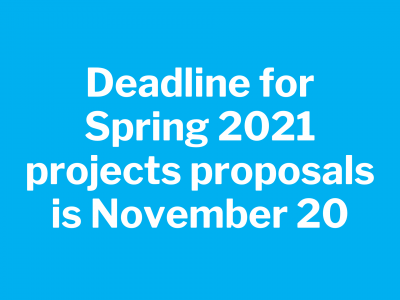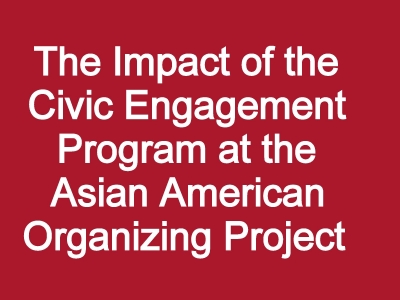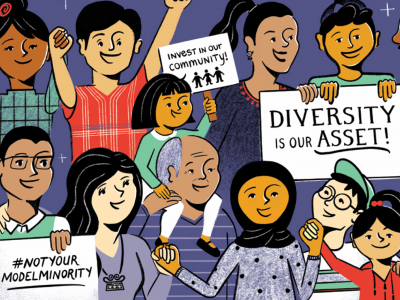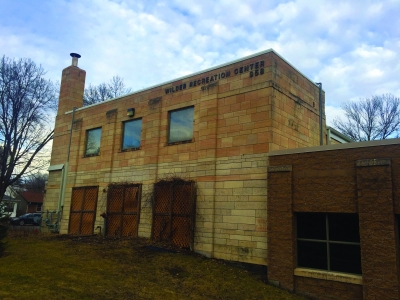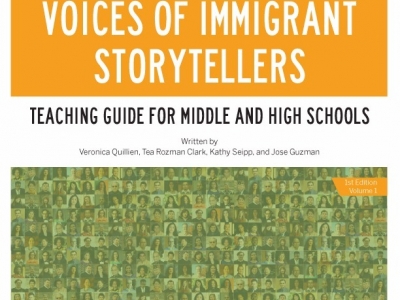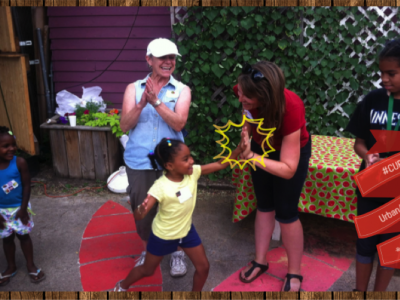The Kris Nelson Community-Based Research Program at the Center for Urban and Regional Affairs (CURA) builds the power and capacity of community-based organizations to create social change through partnerships with the University of Minnesota. We match the research and technical needs of organizations with student research assistants to carry out community-defined and -guided projects. CURA works with organizations selected for the program to create shared understanding…
CURA’s Public Policy Design Lab worked with Restaurant Opportunities Center of Minnesota (ROC-MN) and Minneapolis-based artist Gina Pena to create a visualization of The Rice Activity: Contextualizing the Working Class. This activity was developed through an earlier research project conducted by a UMN Graduate Research Assistant (supported by CURA’s Kris Nelson Community-Based Research Program ) working with ROC-MN.
This visualization is based on a hands-on version of the…
We believe that support and fair treatment of individuals with criminal records is fundamental for a functioning society. The fact that our criminal justice systems create disparities means our society is not working properly. Criminal records impact individuals and families far beyond the punishment of a crime and keep people from living a good life, which everyone has a right to.
Project Goals
As a project-based initiative, we seek projects and work that align with our values and goals to support our mission and vision.
The Kris Nelson Community Based Research Program at the Center for Urban and Regional Affairs (CURA) builds the power and capacity of community-based organizations to create social change through partnerships with the University of Minnesota. The research needs of organizations are matched with students to carry out community-defined and guided projects.
The deadline for Spring 2021 projects proposals is November 20, 2020. The projects will run…
Minnesota’s English Learner student population has consistently grown in recent years and is growing at a faster rate than the total student population. A complex web of funding streams intends to support English Learners; however, concerns have been raised over whether designated funding is reaching English Learners and whether it is providing adequate support. This report aims to address those concerns through the following study aims: 1.) Provide a clear understanding of English Learner funding streams and how the funding is spent, 2.) Get a sense of whether the current funding is meeting students’ needs, and 3.) Offer suggestions of how English Learner funding could be improved.…
The main objective of this project is to conduct a mixed methods research study that seeks to determine the impact of the Asian American Organizing Project (AAOP) has made to the Minnesotan-Asian community since 2016. The goal of this project is to be able to share AAOP’s efforts and achievements with the community, supporters, volunteers and funders. After robust quantitative and qualitative analysis, it was concluded that AAOP’s Civic Engagement efforts have substantially increased in scope and size. Throughout these years, AAOP’s main outreach methods have increased to include phone canvassing, door canvassing, hotspot canvassing, surveys, social media, pledges and registration along…
Coalition of Asian American Leaders (or CAAL) has proactively led a campaign urging our government and private institutions to collect and use disaggregated data that more accurately reflects Asian American experiences. This way, solutions crafted to achieve equitable social, economic, and health outcomes will be more responsive and relevant.
This winter, CAAL staff, designer Khou Vue, and CURA worked together to create a visual snapshot of The Factors Impacting the Economic Wellbeing of Asian Minnesotans. The infographics in this brochure-poster are selected from a CURA…
John Vaughn has thought for years that the east side of St. Paul has not received as much funding as other parts of the city. “Anecdotally, I’ve seen the East Side has lost out on city funding to other neighborhoods,” said Vaughn recently. “Having the City Academy project funding be so severely cut pushed me to organize around finding some hard evidence of this.”
In 2015 Vaughn, who is the executive director of the East Side Neighborhood…
In September 2015, …
The local impact of urban farming, breaking down the boundaries between communities and academia, and #CURAStudents are the topics for today’s #CURAisUrbanAg installment. We’d like to introduce you to Rachel Grewell: she is a graduate student working with CURA and the Urban Farm and Garden Alliance (a great local urban agriculture group profiled…



